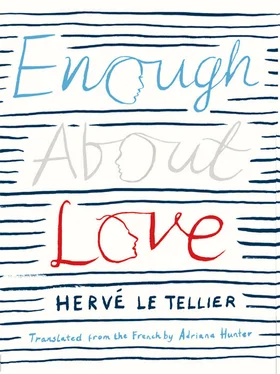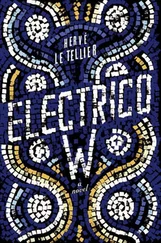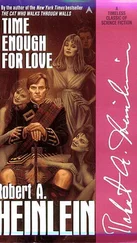In the morning, when Stan comes home from night duty, she will tell him about Christiane’s party, at length, more than usual. About Jean, Maureen’s new boyfriend, “charming, but maybe a bit smug,” about Christiane’s illness, “stabilized,” about the famous and very talented filmmaker who was there, “of course you remember, Stan, Thirty Years Without Seeing the Sea , he directed that, we saw it together.”
“ Thirty Years Without Seeing the Sea,” Stan says. “Yes.”
About Yves, Anna says nothing.
3. Pascal published a challenge, offering prizes for solutions to two complex mathematical problems involving Cavalieri’s calculus of indivisibles, problems he himself had already solved. He sent the challenge out to Wren, Laloubère, Leibniz, Huygens, Wallis, Fermat, and several other mathematicians.
• •
Paris, October 3, midnight .
Romain, it’s late, you’re still working at the lab and I’m writing this letter on the computer while I wait for you, which is in factmy way of not waiting for you. It’s nighttime, I’ve put theour children to bed, they’re asleep. I haven’t written to you for a long timeI wish I didn’t have to write you this letter. Maybe I’m only writing it so that I’ve written it, and I’m hesitatingI don’t know if I’ll give it to you. When you leave a man, what’s the point of explaining?
I’ve met a man, Romain I made lo. I think what matters isn’t the person, but the fact that I could, that I wanted to meet him. I was surprised, surprised to feel so little guilt, so little shame. Just happy like a girlkid of twenty of fifteenon her first date.
We’ve been together ten years, Romain. I have so much affection for you. Over the years, you’ve become my best friend, almost a brother. But, of course, you can’t be a brother. That wouldn’tdoesn’t mean anything anymore. Sometimes, at night, I lie next to you, I touch your skin, I want some intimacy, sometimes sex, without really wanting you. I’m forty years old, or will be in a few months. It’s not the first time I’ve been unfaithful I’ve wanted a man another man. In fact It’s the first time that there’s been nothing there to stop me, that I can’t picture for a minute not seeing him again.
Romain, I’d like I want we need
Louise closes the document without saving it, switches off the computer. She will never find the words to describe the abandon Thomas has brought about in her; it is crucial that she does not find them. She would like to venture an image — a window thrown open by a squall, sugar melting in coffee — but this is about bodies, nudity, desire, a stark, self-evident need, and she had no say in the matter. Yes, that’s it, she thinks. I didn’t have any say in it. Louise smiles to think how Thomas would interpret her choice of expression.
She is in love, she craves sugar, eats a dried apricot, another. All at once she is really tired. She will not wait any longer for Romain, and goes to bed. She is not guilty because, she keeps telling herself, thrilled, she had no say in it. She falls asleep immediately.
• •
I T IS LATE. The Thursday evening patient has left. Thomas looks at his Le Monde , rereads the date bitterly. Tomorrow it will be twenty-six years since Piette died. The photo Thomas always keeps on his desk shows her smiling, lying on a bed with pages of notes scattered around her. She is four months pregnant. She will lose the baby in a few weeks’ time, and commit suicide a year later. On the back of the snapshot, Thomas has written out a canzone from La vita nuova , the blue ink is gradually fading:
Sì che volendo far come coloro
So that I desire to be like one
Che per vergogna celan lor mancanza
,
Who, to conceal his poverty through shame
,
Di fuor mostro allegranza
,
Shows joy outwardly
,
E dentro da lo core struggo e ploro
.
And within my heart am
troubled and weep
.
There are some works so luminous that they fill us with shame for the meager life to which we are resigned, that they implore us to lead another, wiser, fuller life; works so powerful that they give us strength, and force us to new undertakings. A book can play this role. For Thomas, it is La vita nuova , in which Dante weeps for his Beatrice. A friend gave it to him shortly after Piette’s death. But Thomas does not believe that his Piette waits for him in a future life, he doubts that anywhere in the infinite plurality of Lewis’s worlds there is a peaceful universe where a happy Piette gave birth to their little boy.
There are two other photographs on the desk: the larger frame holds a picture of his daughters, Alice and Esther, they are five and seven years old, sitting astride ponies, with their mother. The divorce is already under way. The third picture, black-and-white, shows three men, two of them are recognizably Lacan and Barthes. The youngest, in the middle, has the thick black hair of a twenty-year-old, he is smiling, holding a bulging file in his hand. Thomas is now the least identifiable. Piette took it at the Collège de France, in January 1978. It gives the impression that they are the best of friends, Lacan seems to be laughing at a joke the young psychology student has made. If anyone is sufficiently inquisitive to ask about it, he just says, “That’s me with Jacques and Roland.”
From his office, Thomas has heard the door to the gate opening, recognized the metallic click of Louise’s heels on the paving stones in the courtyard and the staircase, and has opened the door before she could knock. He does not really like displaying how eager he is to see her every time, but he is even less keen to affect patience.
She sees him on the landing and smiles. “What if it wasn’t me?”
“I don’t know anyone who walks like you.”
“I’ll sound different when I’m carrying a suitcase.”
“Which means?”
“Soon, as soon as I can find the courage, I’m going to talk to Romain. I’ll tell him I want us to separate. I’ll tell him about you too. Something inside me’s broken and it won’t come back together again. And it’s not just since we met. Do you still want anything to do with me, this madwoman with two children?”
“Yes.”
“Because you do realize I’m mad, don’t you?”
Thomas looks at Louise, smiles. “I’m very happy to have a madwoman. I’ve always wanted to take work home with me.”
• •
A NNA HAS NOT SEEN YVES again since Christiane’s party. He sent her a recent piece of writing, a play for four characters, and they have arranged to meet in a bistro on the rue de Belleville.
When Anna arrives, she looks around the room, sees him, and is amazed not to have recognized him. She thought he was taller, a ridiculous idea given he is sitting down, remembers a younger man, had not noticed how much hair had deserted his forehead. He is reading a magazine, has a cup of coffee, catches sight of her, smiles. The thrill that has gripped her every other time fails to materialize. She was as apprehensive about the sensation as she was looking forward to it, and the fact that she does not feel it frustrates and placates her at the same time.
She sits down and launches straight into criticizing the dialogue, the trajectory of the play, confessing that she prefers novels. He offers to show her his first novel: he lives very close by, the coffee is much better at his apartment, she accepts. Walking beside him, the feeling grips her again, just as acute, and she welcomes it excitedly.
Читать дальше












